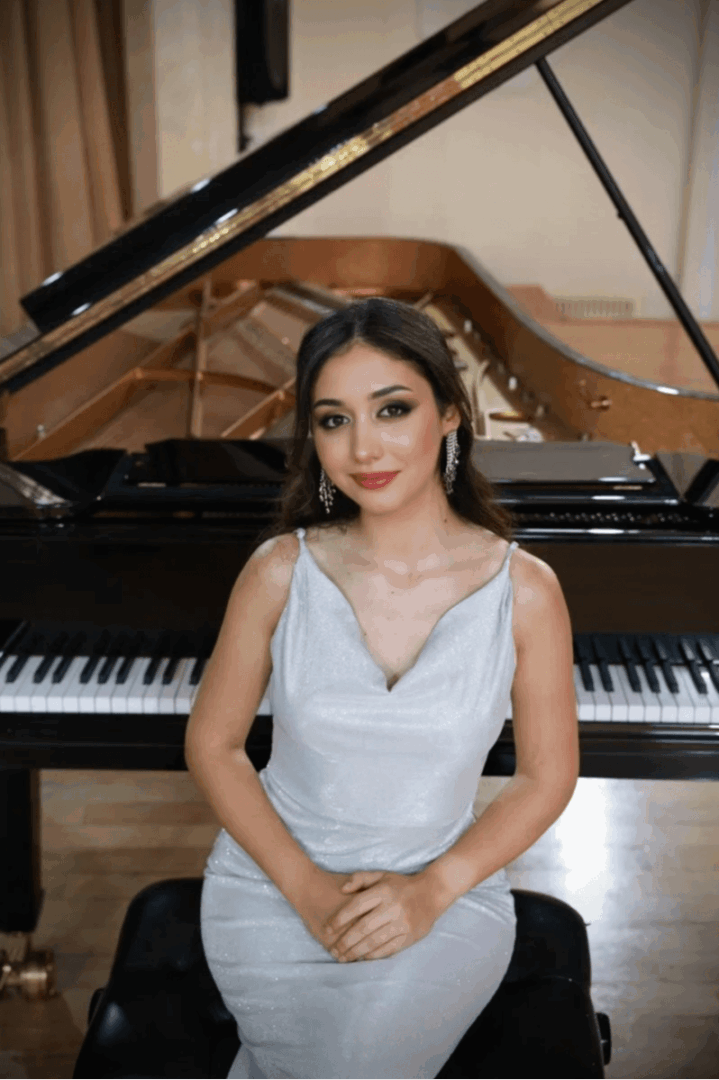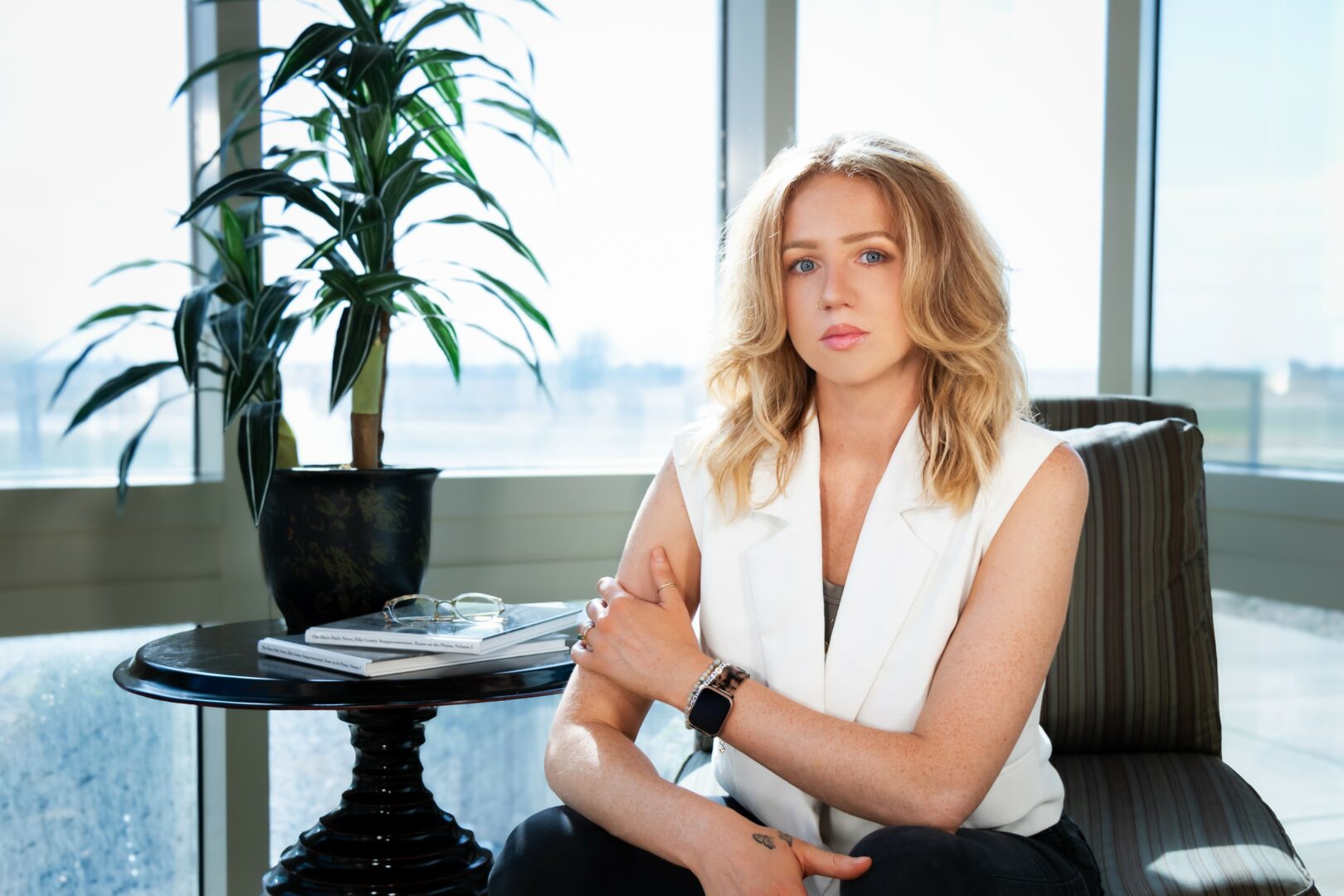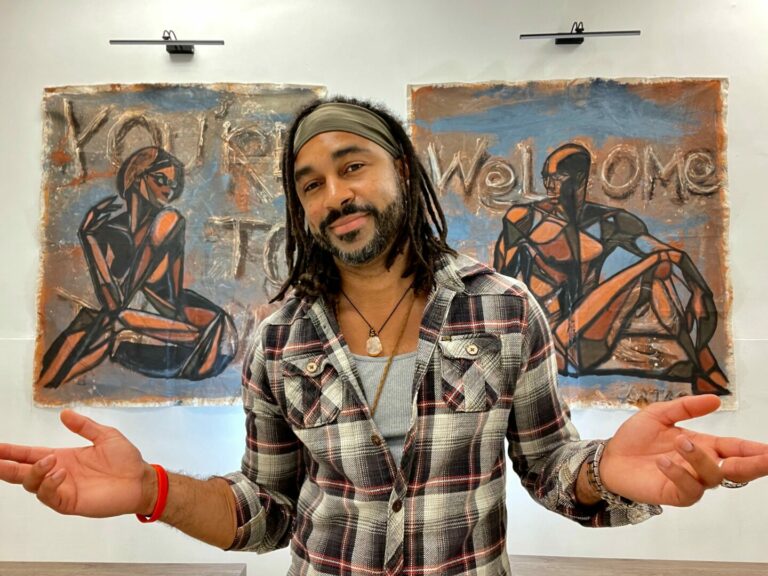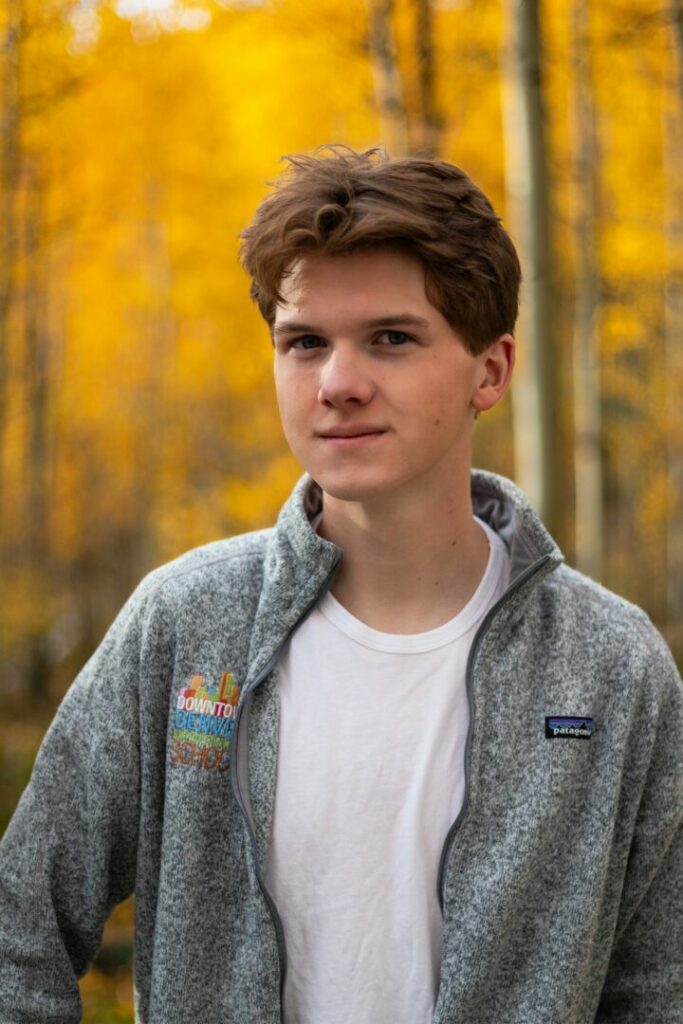We caught up with the brilliant and insightful Leyla a few weeks ago and have shared our conversation below.
Hi Leyla, so excited to talk about all sorts of important topics with you today. The first one we want to jump into is about being the only one in the room – for some that’s being the only person of color or the only non-native English speaker or the only non-MBA, etc Can you talk to us about how you have managed to be successful even when you were the only one in the room that looked like you?
I moved from Azerbaijan to the United States when I was 21, and my life changed almost overnight. Very quickly, I realized I was the only person in the room who came from my cultural background. I didn’t know anyone in my field at that stage, people sometimes didn’t even know where Azerbaijan was on the map. It was intimidating — it made me more protective of myself, and I carried a sincere responsibility to prove that I deserved to be there and to represent my country with dignity.
Coming from a completely different culture also meant going through a real period of adaptation. The way people communicated, rehearsed, and approached feedback was different from what I knew. I had to revise many of my own ideas and adjust to a new rhythm of life.
With time, I realized that being “the only one in the room” was not a disadvantage — it could be a strength. I carried something unique: my cultural heritage, the musical foundation I received in my hometown of Baku, and the emotional world shaped by where I grew up. This naturally influenced my personality and artistic identity, and I began to see that people were genuinely curious about it.
Of course, there were moments of doubt. I often questioned whether I was on the right path or capable of building a meaningful career so far from home. But at some point, I understood that constant questioning was holding me back. There was also a growing responsibility — a clear understanding that if I wanted to build the life I envisioned, I needed to commit fully. If I wanted to deserve my place here, if I wanted to become someone in this new environment, I had to stop hesitating and commit fully. That mindset pushed me focus on the work, to trust myself, and move forward without waiting for perfect certainty.
That shift changed everything. I started taking on projects that required a lot from me — large programs, tight deadlines, and situations where I had to grow quickly. It was stressful at times, but I understood that if I wanted to develop, I had to give myself no other option. That mindset pushed me forward. And it was through this approach — choosing action over fear, and discipline over comfort — that I began to earn trust and respect, not through words, but through consistent, committed work.
Today, I look back and realize how far that decision has taken me. I arrived at 21 and now performing at Carnegie Hall, the Boston Public Library, the Metropolitan Museum of Art, pursuing my doctoral studies at Boston University. For me these moments are not career highlights; they are reminders that dedication and belief in your work can carry you further than fear ever will.
And of course, I know I have many more steps ahead of me. I’m grateful for how far I’ve come, but I’m equally excited for the future — for new collaborations, new stages, and the musicians I will have the honor to work with.
Being “the only one in the room” taught me to let my music speak before I do. And seeing people become interested in my culture and story because of my playing made me realize that this journey has meaning — not only for me, but for anyone who has felt different and unsure of where they belong.
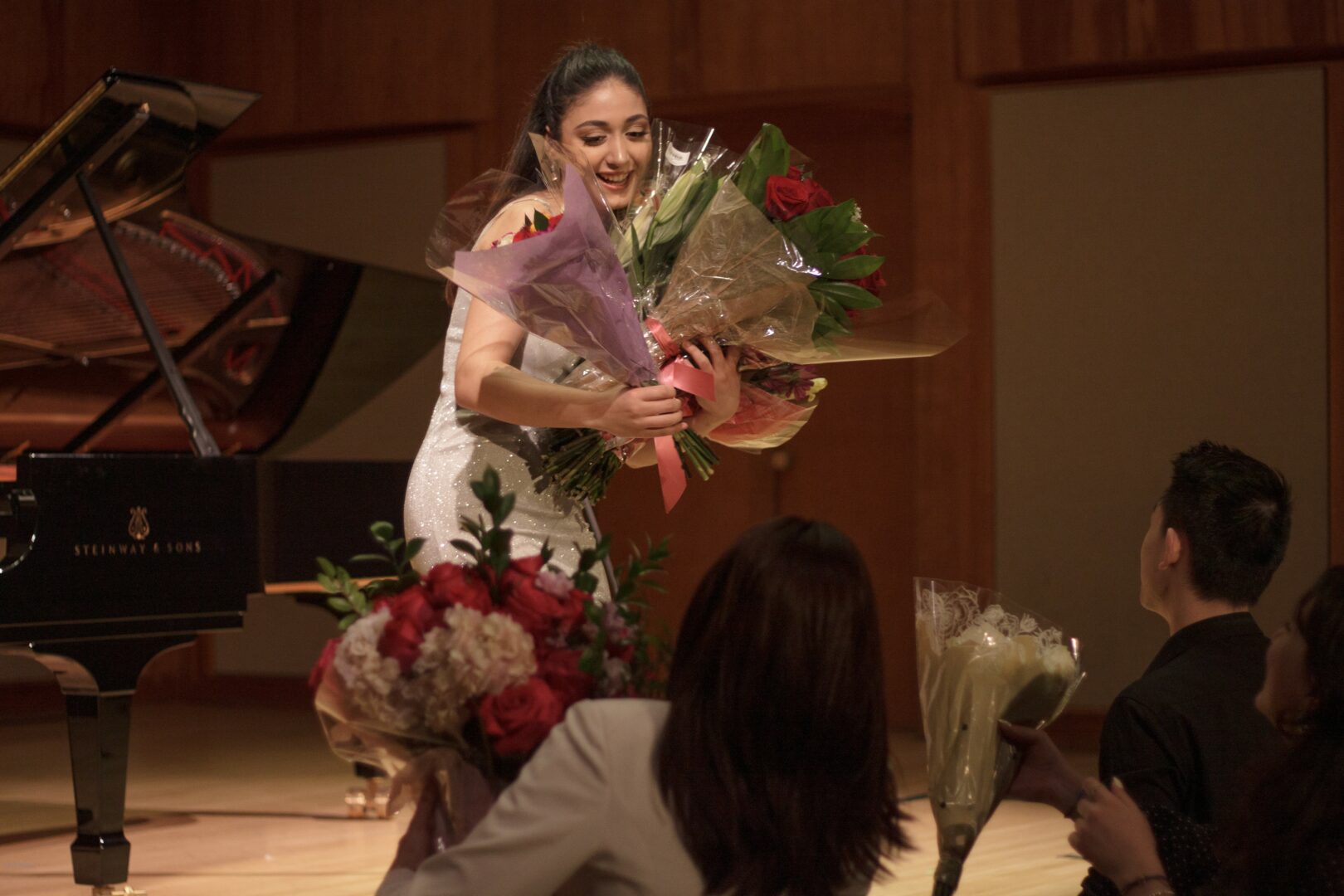
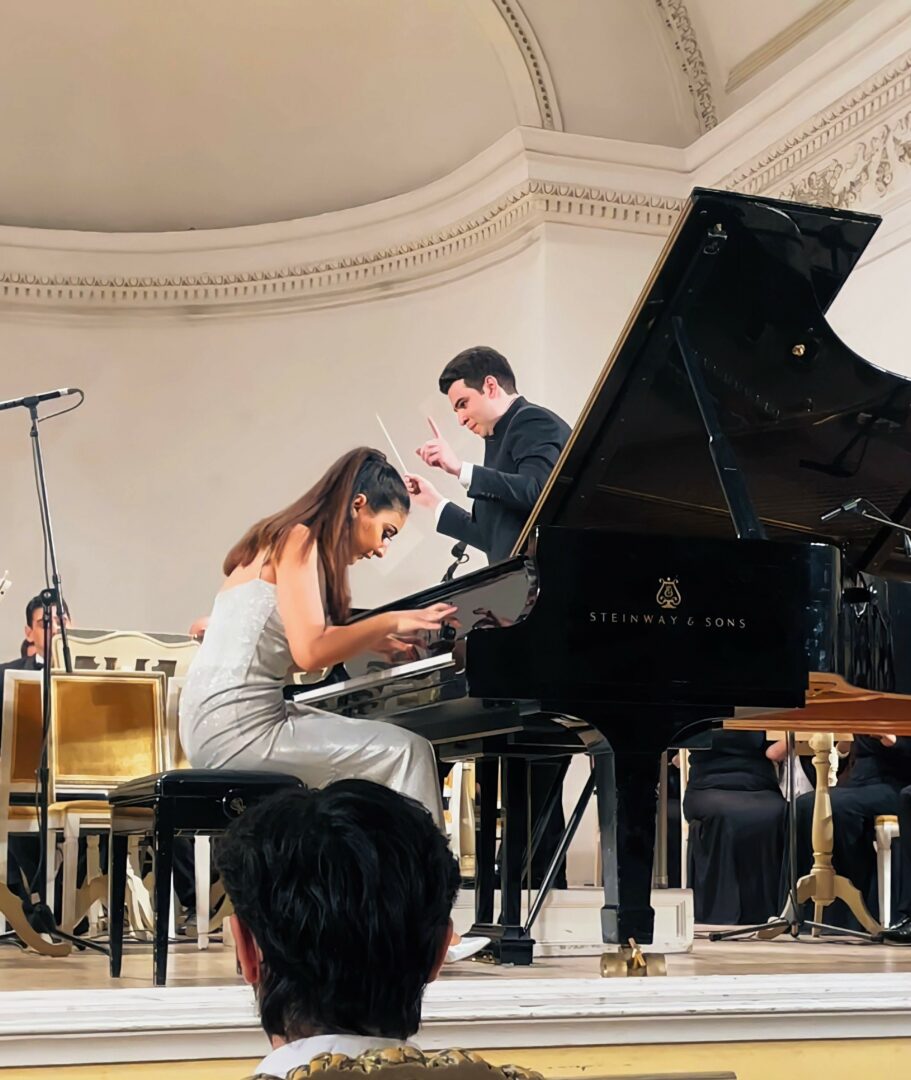
Thanks for sharing that. So, before we get any further into our conversation, can you tell our readers a bit about yourself and what you’re working on?
I am a classical pianist, educator, and artist currently pursuing my Doctor of Musical Arts degree at Boston University on a full scholarship. My work centers on performance, chamber music, teaching, and curating musical experiences that reflect both my Azerbaijani heritage and the artistic world I’ve built in the United States.
One of the most exciting parts of my career is the variety of stages I have the privilege to appear on. In recent seasons, I’ve performed at Carnegie Hall, the Metropolitan Museum of Art, the Boston Public Library, Harvard University, MIT, the Grand Hall of the Tbilisi State Conservatory, the F. Chopin Institute in Warsaw, Yamaha Music Gulf in Dubai, and other venues across Europe, the Middle East, and North America.
Competitions have also shaped my artistic development. I have been honored with prizes at respected international competitions, including the Ann & Charles Eisemann International Competition (USA), the XIII International F. Chopin Competition (Estonia), and major events in the United Kingdom, Latvia, Belgium, and Germany. My recent awards include the Roman Totenberg Award, the Emerging Artist Award from the St. Botolph Foundation, the “Youth Award” by the Ministry of Youth and Sports of Azerbaijan, and a Presidential Scholarship.
Chamber music is one of my greatest artistic passions. In 2024, together with violinist Tetiana Zhmendak and cellist Arol Rzayev, I co-founded the Fabula Trio — an ensemble dedicated to exploring diverse repertoire and bringing thoughtful interpretations to audiences. This past season, we made our New York debut at the Metropolitan Museum of Art and had the privilege of working with Maestro Benjamin Zander of the Boston Philharmonic Orchestra.
Teaching is another essential part of my work. I serve on the piano faculty at the Attacca School of Music and work with young musicians across Boston. Having grown within Azerbaijani, European, and Russian musical traditions, I feel privileged to share this perspective with my students and help them find their own artistic voice. I also work as a pianist for the Boston University Wind Ensemble.
Alongside performing and teaching, I am developing several long-term creative projects, including my first album featuring works by women composers, as well as new recital programs and collaborations connected to my doctoral research.
A musician’s life can be demanding, but I truly love the path I’ve chosen. Recently, within just a few days, I took part in two meaningful international events: representing Azerbaijan at the First Forum of Azerbaijan’s Cultural Ambassadors in Türkiye and appearing as a pianist at the Carnegie Hall Gala Concert organized by the Florida Keys International Competition. Opportunities like these remind me to stay grounded, grateful, and committed.
Everything I do is guided by the belief that music is a universal language that can bridge cultures and tell stories. My goal is to continue performing internationally, collaborating with musicians from around the world, and creating meaningful artistic experiences that reflect both where I come from and who I am becoming.
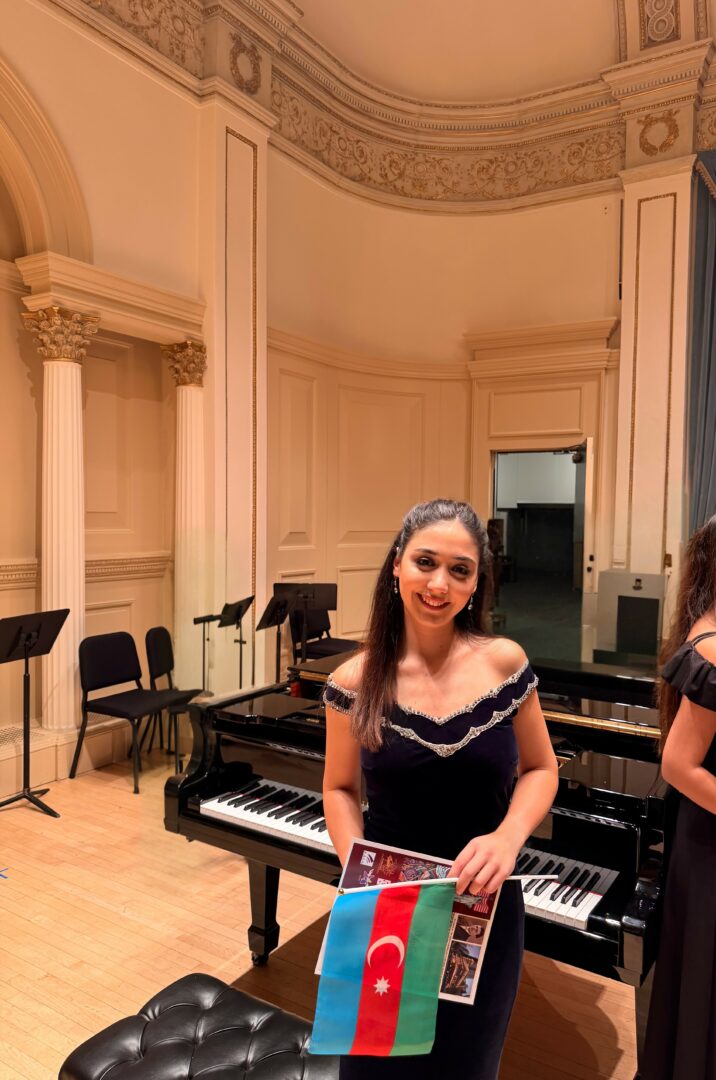
Looking back, what do you think were the three qualities, skills, or areas of knowledge that were most impactful in your journey? What advice do you have for folks who are early in their journey in terms of how they can best develop or improve on these?
Dedication
Music is a lifelong commitment, and true growth requires patience, consistency, and discipline. Throughout my career — whether preparing for international competitions, learning new repertoire on a tight timeline, or balancing performing with teaching and doctoral studies — dedication has always been the foundation. It’s the quiet, daily effort that no one sees that eventually leads to the moments on stage that everyone does see. For those early in their journey, I would say: trust the process, honor your routine, and give your work the time it deserves.
2. Adaptability
Moving from Azerbaijan to the United States taught me the importance of being flexible, open, and willing to evolve. Every environment has its own rhythm, and growth often requires us to rethink old habits and welcome new perspectives. Adaptability helped me navigate different teaching styles, rehearsal expectations, artistic cultures, and life transitions. It has also allowed me to collaborate with musicians from many traditions and to feel at home on stages across the world. My advice is to stay open — the more you listen, observe, and learn, the stronger and more versatile you become.
3. Curiosity
Curiosity keeps me inspired. It is what makes me search for new repertoire, explore different artistic ideas, and continue studying even when I already know the basics. Curiosity turns learning into joy rather than obligation. For young musicians, my advice is simple: stay curious about everything — about music, about people, about history, about your instrument, and even about yourself.
Together, these three qualities have guided me through challenges and opened doors to opportunities I never expected. And I believe they can support anyone who is building a meaningful artistic path, no matter where they begin.
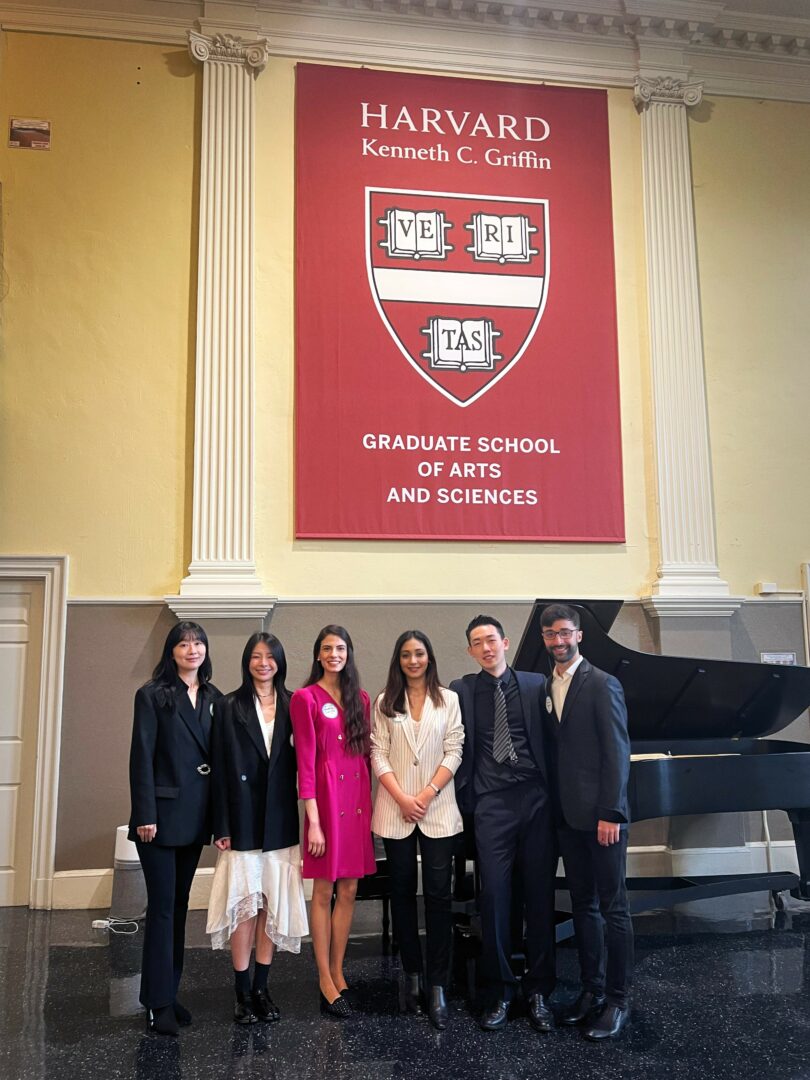
All the wisdom you’ve shared today is sincerely appreciated. Before we go, can you tell us about the main challenge you are currently facing?
The biggest challenge I face right now is balancing the many directions of my artistic life at the same time — performing internationally, teaching, completing my doctoral studies, and developing new projects such as my first album. Each of these demands full focus, and the real challenge is not the work itself, but carrying it all with clarity, purpose, and inner steadiness.
What helps me is remembering why I chose this path. Music has always been at the center of my life, and I feel privileged to build a career that allows me to represent my country, collaborate with inspiring musicians, and continue discovering new layers within my artistry.
I’ve also come to understand something meaningful about building a life in the arts:
there are times when you feel supported and surrounded — and there are times when you walk forward alone because you are creating something that does not exist yet.
Both are necessary, and both have their own lessons.
The reminder I return to often is this:
Surround yourself with people who challenge you, believe in you, and remind you of who you are becoming. Stay grateful — no meaningful journey is ever built alone. But also understand that when you choose a unique path, moments of solitude are natural. You are simply walking a road that not everyone is meant to walk. Those quiet moments do not signal uncertainty; they are often the clearest signs of growth.
This mindset helps me move through challenges with calmness and clarity. I don’t believe growth has a final destination, but I do believe in moving forward with intention, gratitude, and a steady respect for the craft that continues to shape my life.
Contact Info:
- Instagram: https://www.instagram.com/leylazeynalovaa/?hl=en
- Facebook: https://www.facebook.com/leyla.zeynalova.733076/
- Youtube: https://youtu.be/JdXpJgz2QQg?si=WvnRYM6uHtZ4-SQw
- Other: https://youtu.be/aeZIRfZewnw?si=_sWZY1xPw9hbDug5
https://emcy.org/prize-winners/leyla-zeynalova/
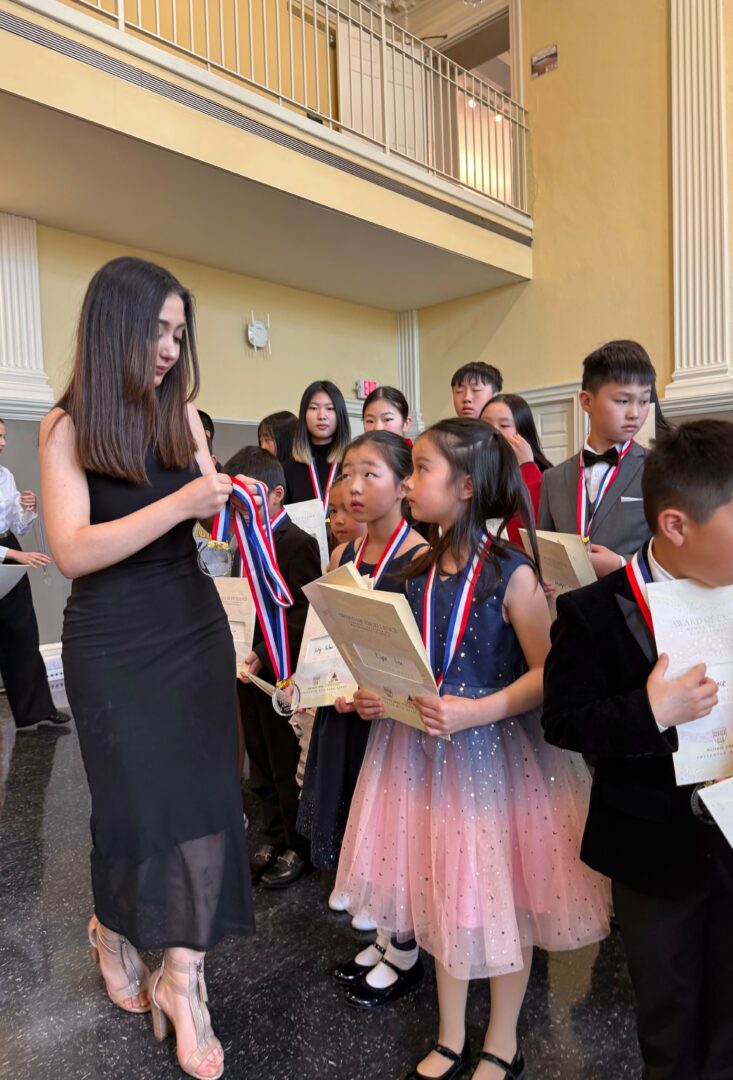
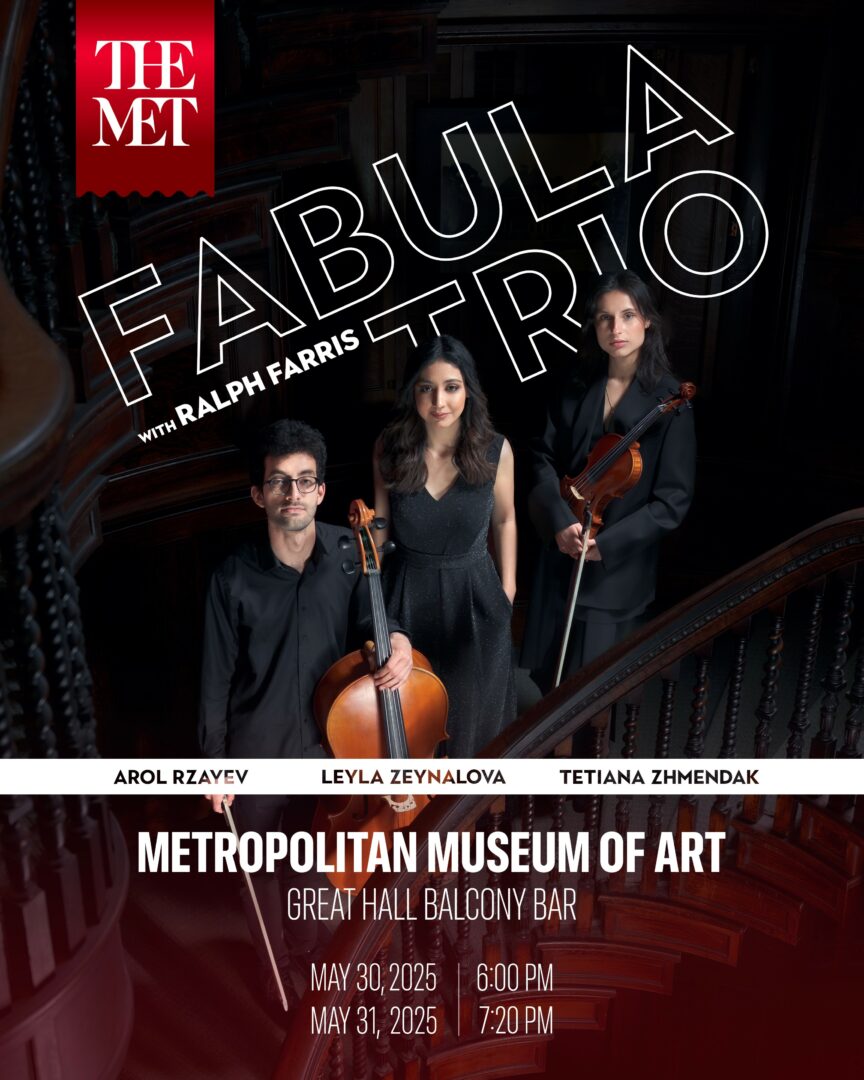
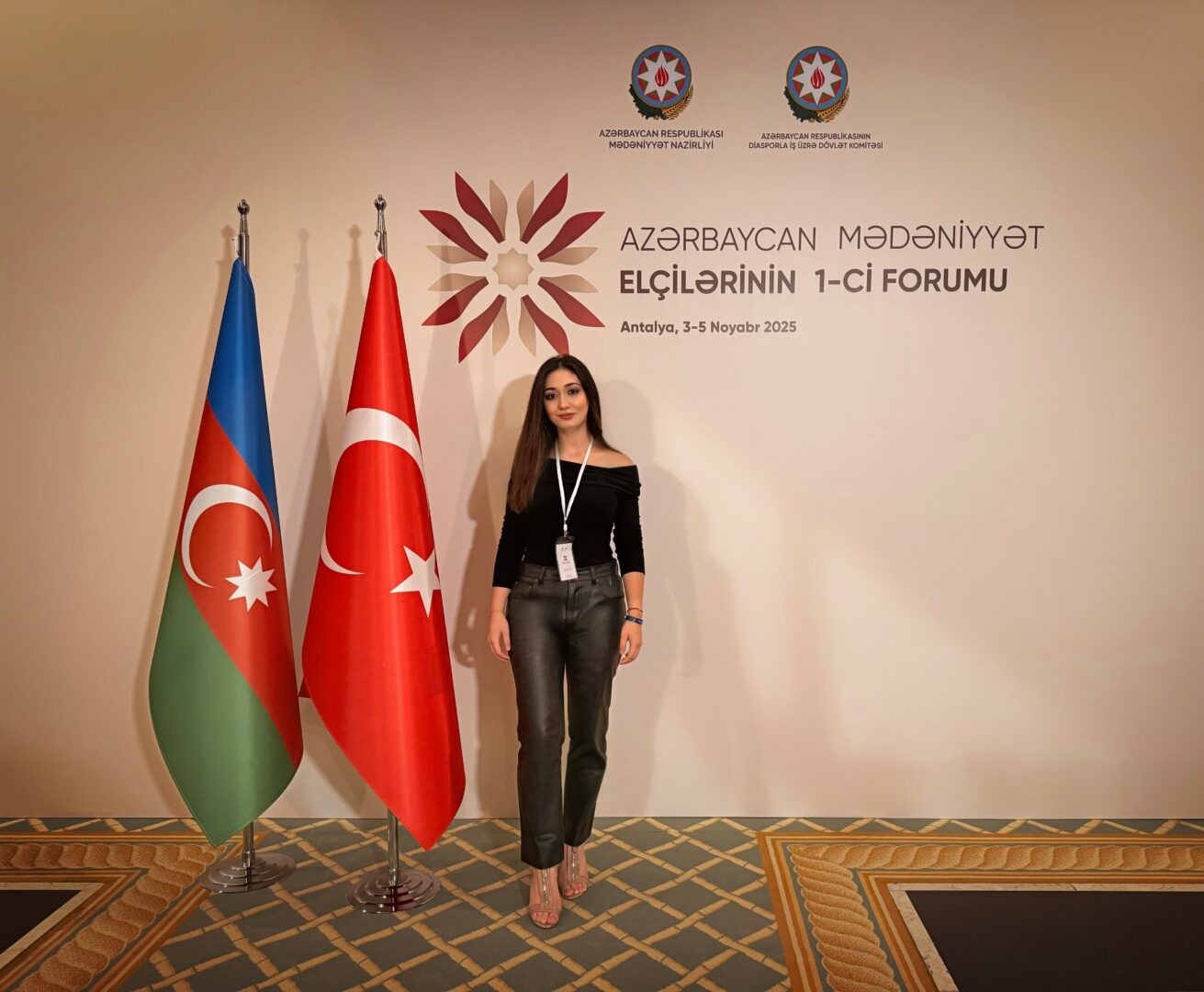
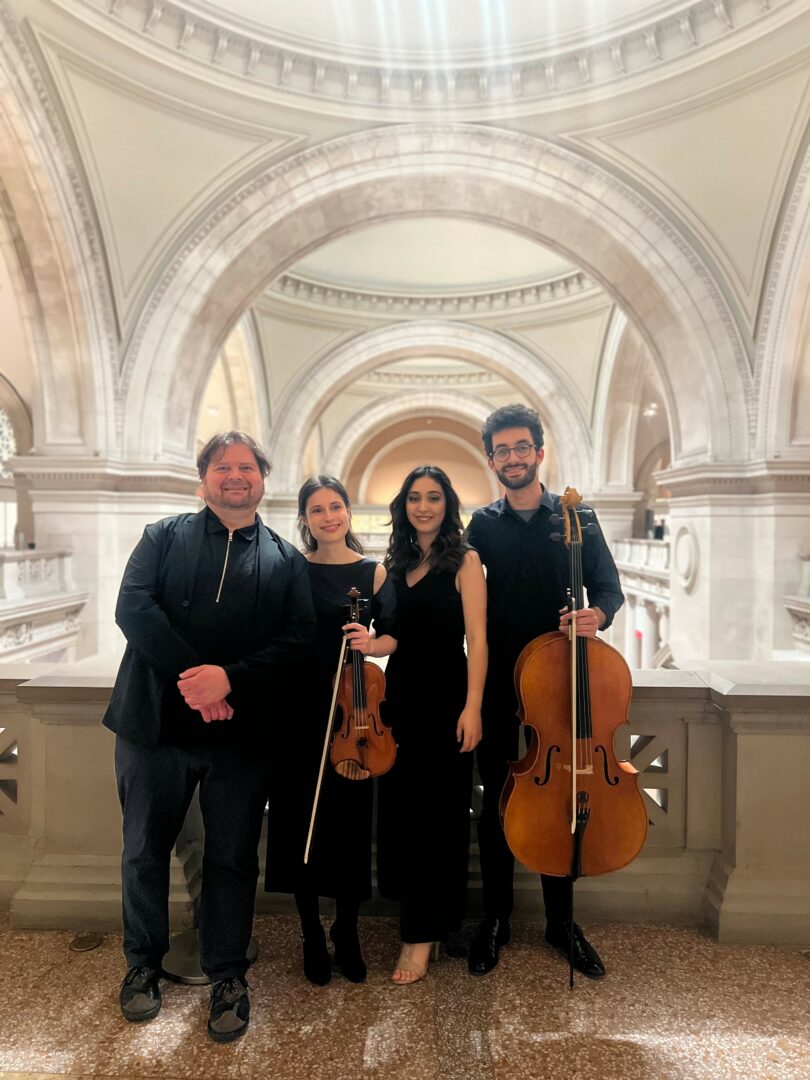

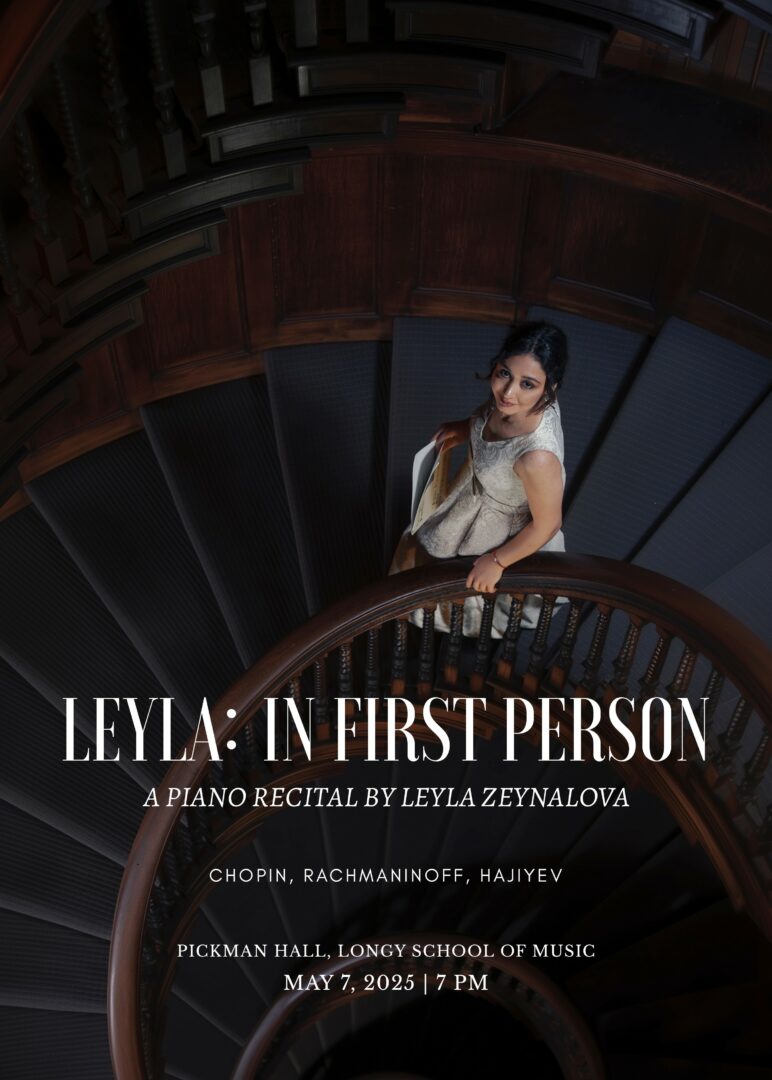
so if you or someone you know deserves recognition please let us know here.

